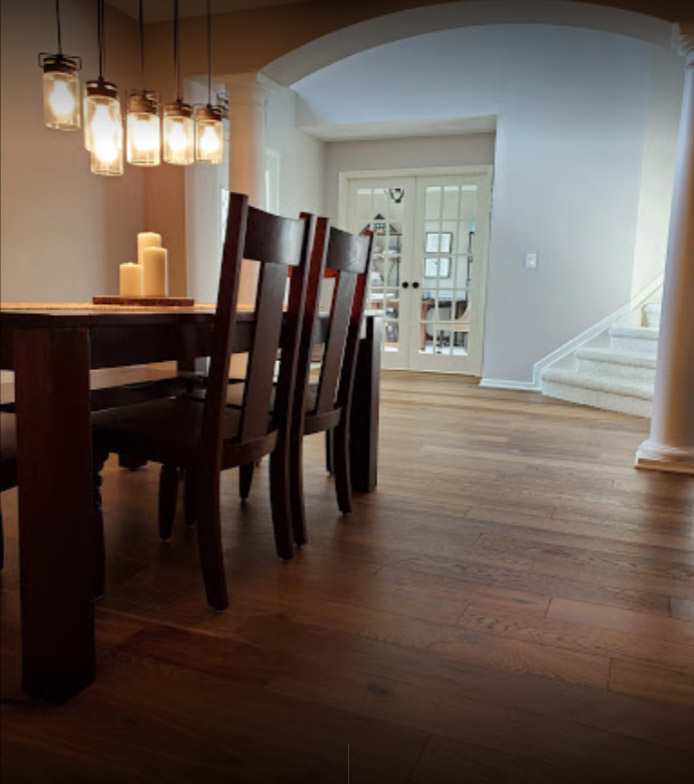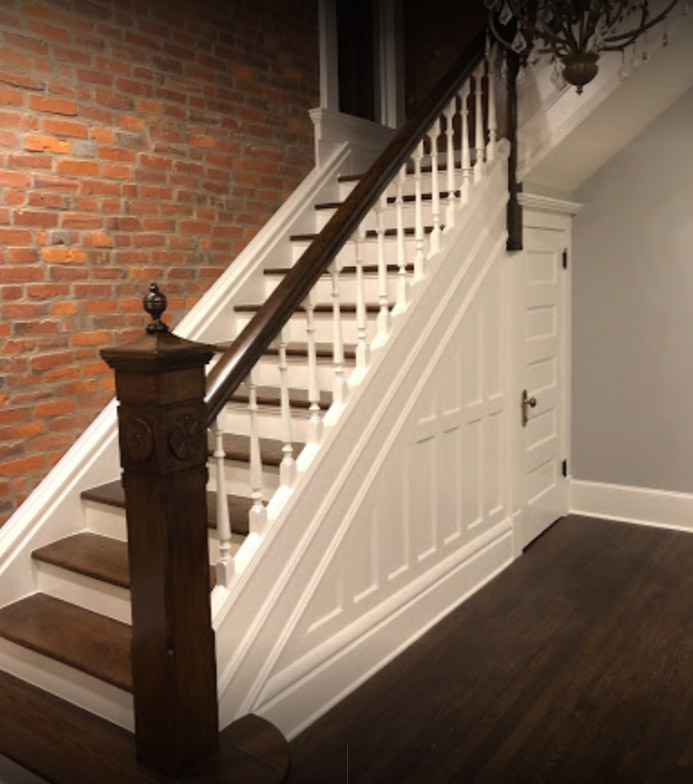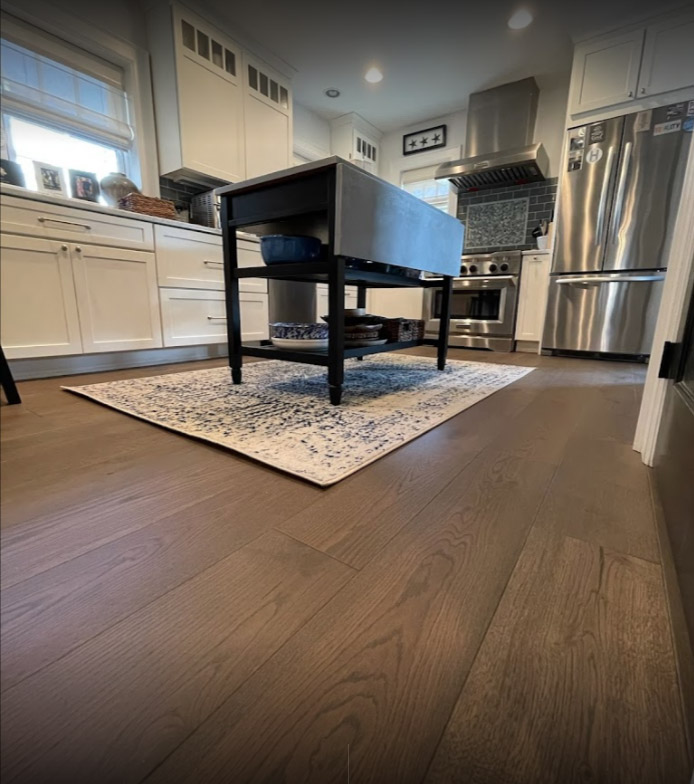
Engineered flooring may be the most popular option, if only in name. It’s often greatly misunderstood and sought after for the wrong reasons. The first note is that engineered flooring is technically in the same class as hardwood flooring. Engineered floorings surface veneer is comprised of true hardwood.
But let's clear up one thing right away - engineered flooring is not better than anything else. In fact, in many cases, it's not nearly as good as hardwood or vinyl options. This does not mean it's no good. In fact, modern engineered flooring has an ace up its sleeve.
At first glance, engineered flooring has one big advantage over hardwood. It does not expand and contract with seasonal humidity changes, not nearly in the way hardwood will. This process of movement from winter to summer where your hardwood and engineered floorings absorb humidity (or lack thereof) within the home cause it to move season to season - sometimes dramatically, but often reserved to a spect’s widths.
Because engineered flooring is comprised of layers of false hardwood or plywood underneath and a thin layer of genuine hardwood on top, it moves much less than true hardwood which is wholly hardwood fiber. Plywood does not respond to moisture the same way hardwood does. It is often treated plywood and resistant to movement for your benefit.
This process of seasonal shifting is not a dire reason to reject any flooring option per se. A proper expansion gap will allow your flooring to naturally move back and forth without ever noticing. It is true, however, that over decades, this movement will eventually create a looser floor with some gaps and creaks. This is largely dependent on proper installation.
Engineered wood was largely a way to obtain the look of high-end solid wood without the price tag. Most people will be totally unaware that just under your wood floors is a plywood core. It is also a very viable option for gluing hardwood to basement slabs. Glued flooring often cannot sustain the pressure of movement from hardwood, making engineered, vinyl, or floating floors the appropriate option for stone or slab.


Finally, it's worth noting that while engineered floor is more stable over decades of use, that benefit is rarely realized. It typically consists of 1/16" veneer of "real hardwood" that is completely unable to be sanded or restored. Engineered flooring is not treated with any different protective chemicals than any other hardwood.
When engineered flooring has worn down, it will require replacement. For this reason, hardwood, when within budget, is a much better option. But the ace up the sleeve? Modern engineered flooring is more often now being made with a 1/4" veneer, making it adept for sanding in the future, and in the same turn, minimizing deforestation.
These types of engineered woods, while usually expensive, are by definition a better option than true hardwood flooring. Engineered flooring often comes in more customized or creative appearances due to its thin layer, making it more pliable to custom aesthetics. Some custom wide plank engineered flooring you’ll find in Columbus, Ohio is among the most beautiful options in the world. Not to worry – we’ll help sort through these options with you!
